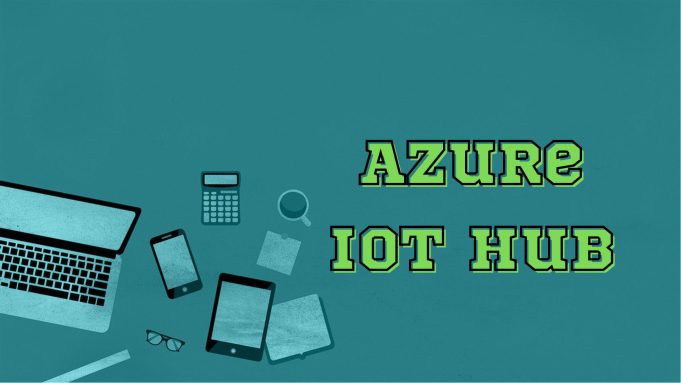Last Updated on April 16, 2024 by Jawad Ali
Azure IoT Hub: A Comprehensive Guide
The Internet of Things (IoT) has revolutionized the way we interact with technology and the world around us. IoT has opened up a world of possibilities by connecting everyday devices to the internet, allowing them to send and receive data and perform various tasks. IoT has already been integrated into our homes, businesses, healthcare systems, and more.
As the number of connected devices continues to grow, the need for a robust and scalable solution to manage these devices and their data becomes more pressing.
Enter Azure IoT Hub, a fully managed service provided by Microsoft Azure that offers a complete end-to-end solution for IoT. In this blog post, we’ll take a deep dive into Azure IoT Hub and explore its features and capabilities.
What is Azure IoT Hub?
Azure IoT Hub is a cloud-based platform that enables secure and reliable communication between IoT devices and the cloud. It acts as a central hub for managing IoT devices and collecting and analyzing their data. With Azure IoT Hub, organizations can connect, monitor, and control their IoT devices and applications from a single, centralized platform.
Features of Azure IoT Hub
- Device Management
One of the most important features of Azure IoT Hub is its device management capabilities. It allows organizations to manage their IoT devices at scale, regardless of their location or the number of devices they have. Azure IoT Hub supports device provisioning, which enables organizations to quickly and easily add new devices to their IoT solution. Additionally, Azure IoT Hub supports device management operations such as device twin updates, direct method invocations, and device-to-cloud messaging.
- Security
Security is a key concern for IoT solutions, and Azure IoT Hub takes it seriously. It offers a number of security features to protect your IoT devices and data, including per-device authentication, data encryption, and access control.
Additionally, Azure IoT Hub integrates with Azure Active Directory and Azure Key Vault to further enhance its security features.
- Scalability
As the number of IoT devices grows, it becomes increasingly important to have a scalable solution in place. Azure IoT Hub offers limitless scalability, allowing organizations to add as many devices as they need without worrying about reaching any limits.
- Real-time Data Analytics
Azure IoT Hub also provides real-time data analytics capabilities, enabling organizations to analyze and make sense of the massive amounts of data generated by their IoT devices.
It integrates with other Azure services such as Azure Stream Analytics and Azure Time Series Insights to provide advanced analytics capabilities.
- Integration with Other Azure Services
Azure IoT Hub integrates with a wide range of Azure services, making it easier for organizations to build complete end-to-end IoT solutions. It integrates with services such as Azure Event Grid, Azure Functions, Azure Logic Apps, and Azure Machine Learning, among others.
Pros of Azure IoT Hub:
Scalability: Azure IoT Hub is highly scalable and can handle millions of devices and billions of messages.
Security: Azure IoT Hub provides end-to-end security for device-to-cloud and cloud-to-device communication.
Integration:
Azure IoT Hub integrates with other Azure services like Azure Stream Analytics, Azure Functions, and Azure Machine Learning for building complex IoT solutions.
“Empower your future with IoT knowledge – join our IoT training today!”
Device Management: Azure IoT Hub provides features for device management, such as device registration, device identity, and device configuration.
Global Availability:
Azure IoT Hub is available in multiple regions and offers a global presence, providing low-latency communication between devices and the cloud.
Cons of Azure IoT Hub
Cost: Azure IoT Hub can be expensive, especially for large-scale IoT implementations.
Complexity:
Setting up and configuring Azure IoT Hub can be complex and requires a good understanding of IoT technology and Azure services.
Limited Customization: Azure IoT Hub provides limited customization options, which may not be sufficient for complex IoT scenarios.
Dependence
Using Azure IoT Hub requires the use of Azure services, which can lead to lock-in and dependence on Microsoft’s cloud platform.
Conclusion
In conclusion, Azure IoT Hub is a comprehensive solution for IoT that offers a wide range of features and capabilities. Its device management, security, scalability, real-time data analytics, and integration with other Azure services make it a top choice for organizations looking to implement IoT solutions.
Whether you’re a small startup or a large enterprise, Azure IoT Hub has everything you need to build and manage your IoT solution with ease.












